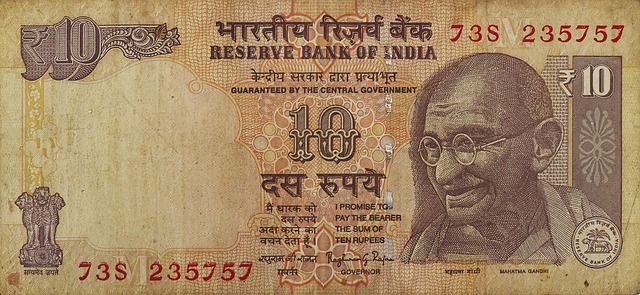Personal Loan Consolidation offers a strategic solution for managing multiple high-interest unsecured loans and credit cards by converting them into a single, lower-rate loan. This approach streamlines repayment, reduces overall interest expenses, simplifies cash flow management, and can even improve the borrower's credit score over time. When selecting a consolidation service, prioritize reputable providers with strong industry standing who offer personalized loan plans and clear communication. After consolidation, establishing a robust debt management plan is vital, involving budget creation, expense tracking, timely payments, and building an emergency fund to ensure successful repayment.
Struggling with multiple unsecured loans and credit card debts? Personal Loan Consolidation offers a solution. This article guides you through understanding debt consolidation, its benefits, and how it can simplify your financial burden. We explore the challenges of high-interest rates and multiple payments, then delve into the process of personal loan consolidation. Learn how to choose the right service and effectively manage your debt post-consolidation, ensuring a brighter financial future.
- Understanding Debt Consolidation and Its Benefits
- The Challenges of Unsecured Loans and Credit Cards
- How Personal Loan Consolidation Works
- Choosing the Right Debt Consolidation Service
- Managing Your Debt Post-Consolidation
Understanding Debt Consolidation and Its Benefits

Debt consolidation is a strategic financial tool that combines multiple debts into one single loan with a lower interest rate. This approach simplifies repayment by making it easier to manage and potentially saving money in the process. For individuals burdened by unsecured loans and credit cards, personal loan consolidation can be a game-changer. It offers a clear path to debt elimination by consolidating high-interest debts, allowing for more manageable monthly payments and reducing overall interest expenses.
By consolidating debts, borrowers can say goodbye to multiple payment due dates, lowering their stress levels and increasing financial control. This method is particularly advantageous for those with varying interest rates on different loans, as it provides a fixed rate for the entire consolidated amount. As a result, borrowers are protected from future interest rate fluctuations, ensuring consistent and predictable repayment terms.
The Challenges of Unsecured Loans and Credit Cards

Unsecured loans and credit cards can present significant challenges for borrowers, often leading many to seek effective solutions like personal loan consolidation. These challenges stem from the lack of collateral backing these financial instruments, making them inherently riskier for lenders. As a result, interest rates tend to be higher, and repayment terms may be less favorable compared to secured loans. The situation is further complicated by variable interest rates on credit cards, which can fluctuate based on market conditions, leading to unpredictable monthly payments. Additionally, multiple creditors may be involved, making it cumbersome for borrowers to manage their repayments and negotiate better terms. This complex landscape highlights the need for consolidation services tailored to unsecured debt relief.
How Personal Loan Consolidation Works

Personal Loan Consolidation is a process that simplifies managing multiple debts by combining them into one loan with a single, more favorable set of terms. This approach allows borrowers to pay off various unsecured loans and credit cards with different interest rates and repayment schedules through a single monthly payment. The consolidation loan is typically secured against the borrower’s creditworthiness, including their credit history and income.
By consolidating, individuals can reduce their overall interest expenses over time as they are often able to secure a lower interest rate on the new loan. This strategy also simplifies cash flow management by eliminating the need to track multiple payments across various creditors. Moreover, consolidation can help improve a borrower’s credit score over time by demonstrating responsible debt management.
Choosing the Right Debt Consolidation Service

When considering a debt consolidation service for unsecured loans and credit cards, it’s crucial to choose one that suits your financial needs and goals. Start by evaluating their track record and reputation in the industry; look for reviews from past clients to gauge their experience. A reliable service should offer a range of options, including personal loan consolidation plans tailored to different circumstances.
Compare interest rates, repayment terms, and any associated fees. Ensure transparency and clear communication throughout the process. The right debt consolidation service will provide personalized guidance, helping you make informed decisions to simplify your debt management journey.
Managing Your Debt Post-Consolidation

After consolidating your unsecured loans and credit cards into a single personal loan, it’s crucial to establish a solid plan for managing your debt. The first step is creating a realistic budget that allocates funds for loan repayment while considering other essential expenses. This involves tracking your income and outgoings to understand your financial constraints and make informed decisions.
Regularly reviewing and adjusting your budget is key to staying on track. Make timely monthly payments to avoid penalties and interest charges, which can derail your debt-management efforts. Additionally, consider setting aside a portion of your budget for an emergency fund to protect against unforeseen circumstances that may disrupt your repayment plan.
Debt consolidation can be a powerful tool for managing unsecured loans and credit cards, offering financial relief and improved repayment terms. By choosing a reputable debt consolidation service, you can streamline the process, reduce stress, and take control of your finances. Personal loan consolidation is a strategic move that enables you to simplify payments, lower interest rates, and potentially shorten your loan term. With careful consideration and management post-consolidation, it’s possible to achieve financial stability and avoid future debt accumulations.
